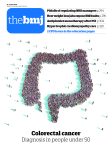
The law may be an ass, but is it our last hope to protect health?
- Kamran Abbasi
- The BMJ
- kabbasi{at}bmj.com
The legal system, an ancient butt of jokes about its absurd rulings and quirks, may be the only authority standing between us and our self-inflicted doom. Wherever we look—where democratic rights are denied, where elected leaders ape unelected demagogues, where commercial interests steamroll public interest, or where powerful nations render multilateral organisations and international norms irrelevant—holding to the laws that govern individual rights and the responsibilities of nations is now of the greatest imperative.
The power of law making, wielded by politicians, was demonstrated last week with two landmark UK parliamentary votes in favour of fundamental and historic changes to legislation. The first was to decriminalise abortion, meaning that women will no longer be punished by the legal system for a pregnancy termination (doi:10.1136/bmj.r1261).1 The law change is good for women’s health and rights. For medical staff, it removes the ethical dilemma of whether or not to report a woman to the police (doi:10.1136/bmj.r1243).2 Thirty years of data from Canada suggest that decriminalising abortion doesn’t necessarily lead to more late abortions.
A second vote seeks to legalise assisted dying in England and Wales (doi:10.1136/bmj.r1293).3 This bill has attracted intense debate and disagreement, crossing political lines and dividing professionals. Even supporters of the principle of individual choice on assisted dying struggle with operational elements of the proposed law and worry that the risks to vulnerable groups are not fully mitigated (doi:10.1136/bmj.r1220).4 The question now is whether the final consultation stages will allay the professional and public misgivings. A law that is right in principle but flawed in its implementation is an unsatisfactory outcome, which will feel like a dangerous one for people worried about coercion.
Several major issues must be tackled head on. First, the scientific baselessness of a six month prognosis, when an argument based on “unbearable suffering” might be more robust (doi:10.1136/bmj.q2719).5 Second, the need for a clear response to the “slippery slope” argument, with protection for vulnerable groups such as people with disabilities. Third, the role of health professionals in the process, since many do not wish to be involved. Fourth, the uncomfortable notion that undue suffering may be a consequence of suboptimal palliative care provision. What we don’t need is a pyrrhic victory: a law that justly gives people the right to an assisted death but creates a bureaucratic, medicalised death. The duty on the UK’s House of Lords, which will now review the proposed legislation in its final stages, is onerous and critical.
Law and health interact in Louise Casey’s review of sexual exploitation of girls by “grooming gangs” (doi:10.1136/bmj.r1265).6 It describes a landscape that is data poor, limits information sharing, and fails to protect vulnerable girls. Data gathering is clearly unrepresentative, inconsistent, and unhelpful—and it must be improved. Behind the headlines, Casey has revealed how health services missed warning signs about the peril that girls were in. The promised government inquiry will need to be carefully considered by health services. And the inquiry must address the hazard of sharing sensitive personal information, which is a central concern among health professionals.
The tentacles of the law extend further. Take, for example, a recent progressive law passed in the Dominican Republic that criminalises ecocide (doi:10.1136/bmj.r1255).7 Or how about the possibility of courts investigating the impact of problematic clinical trials of ticagrelor? A BMJ investigation (doi:10.1136/bmj.r1201 doi:10.1136/bmj.r1273) poses serious questions about the conduct and reporting of ticagrelor trials that have had a global effect on clinical care, from what now seem to be unreliable data.89
Legal systems are not necessarily a panacea—especially when subverted by political appointments and intimidation or when rulings clash with personal beliefs—yet their potential to improve and safeguard public health is undeniable. In this precarious moment of national and global multicrisis, the legal system is more and more becoming our last and only hope.



